
Klaytn Director: “Users are the key to Korean blockchain market”
In 2018, Klaytn was launched by Ground X, the blockchain subsidiary of Korean technology giant Kakao. In South Korea, over 93% of the population uses Kakao Talk, the messaging app of this conglomerate. Additionally, the company manages various services in the field of financial technology. With the support of this giant, Klaytn has applied blockchain technology to a wide range of areas, including music, gaming, payments, and content copyright.
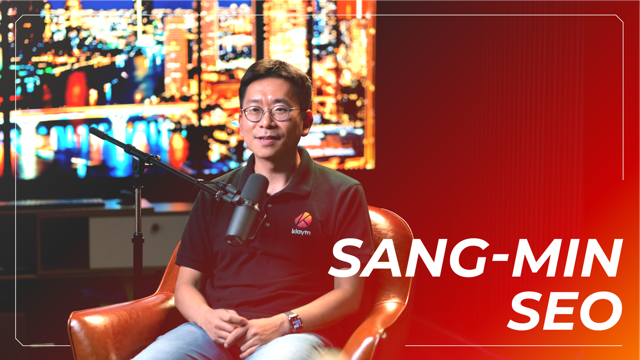
Before joining Klaytn, Sangmin Seo had a Ph.D. in computer science and worked as a senior engineer at Samsung Research. When working at Samsung, he had a chance to conduct direct research on blockchain and AI.
Later, he became CTO at Ground X, responsible for researching scalability and performance for Klaytn. Working at Klaytn from its early days, Seo understands their mission is to bring the Web3 concept closer to as many users as possible. That is why Klaytn positions itself as a blockchain for gaming and the metaverse, two areas closely related to traditional Internet users.
"Games are a pivotal application for blockchain because most games have their own ecosystem and economic model," Seo shared with Interlock.
Furthermore, he highlighted the close connection between games and metaverse. Seo believes that games are also a form of the metaverse because each platform builds its own world with "residents" living within that world.
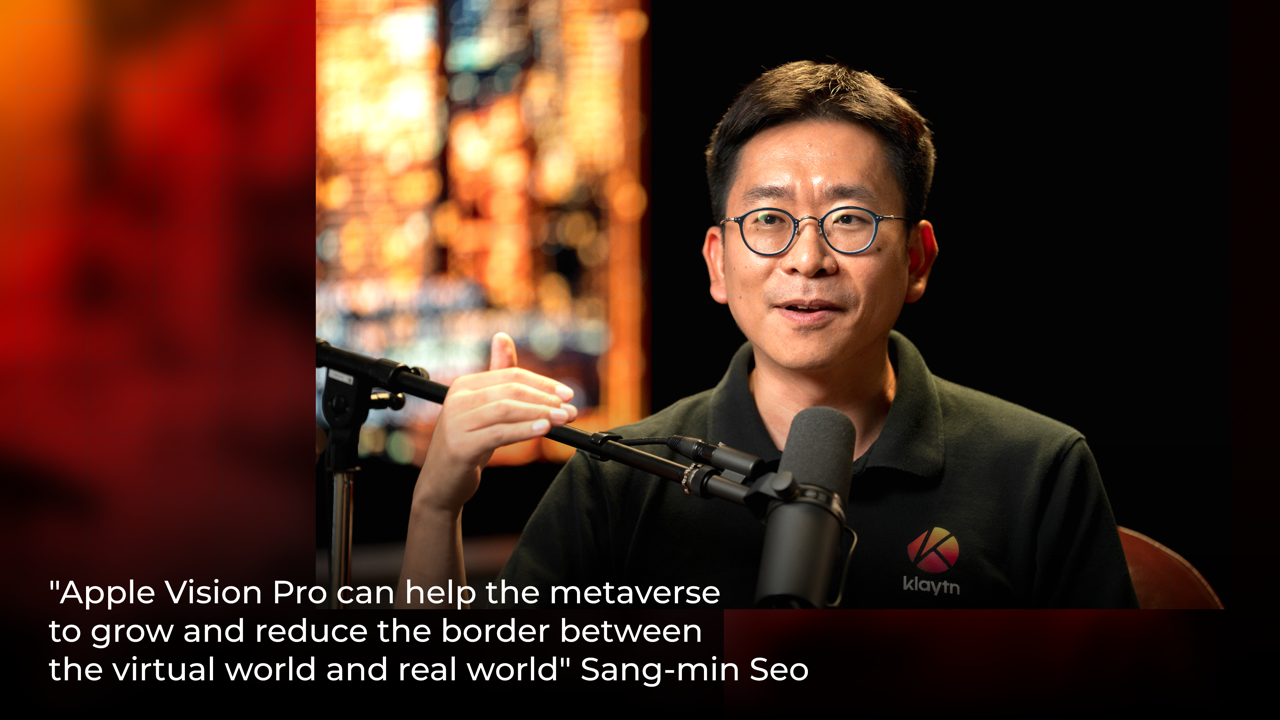
Therefore, Klaytn aims to connect the real world with crypto by supporting the development of the gaming ecosystem on its network. Many traditional AAA game developers such as Netmarble, Neoply, and Kakao Games have built projects on Klaytn. Among them, the mobile gaming giant Netmarble has over 10 blockchain and metaverse games. One of the company's core blockchain games is “Everybody's Marble: Metaworld,” with around 200 million users.
The Director of Klaytn believes that games have always been a bridge between technological innovations, and blockchain is no exception. Play-to-Earn games have long gained an advantage and attracted many participants to the blockchain industry. Although the South Korean government banned Play-to-Earn games at the end of 2021, many experts are optimistic that the ban will be lifted soon.
In addition, Korean projects are seeking ways to penetrate foreign markets. According to the Ministry of Culture, Sports and Tourism of South Korea, in 2020, blockchain gaming companies earned 8.1 billion USD in export revenue, accounting for over 70% of the total content production export revenue.
During the GameFi boom, a studio game's founder even became a billionaire after launching a blockchain game for the first time in their 20 years of operation. In 2021, after the launch of Mir 4, WeMade's stock skyrocketed by over 620%. According to Forbes, with nearly 45% ownership, the net worth of founder Park Kwan-ho reached 1.2 billion USD.
Addressing the explosion of blockchain games, Seo believed that users were the greatest strength in helping Korean projects develop crypto compared to other technology powerhouses like Singapore or Japan.
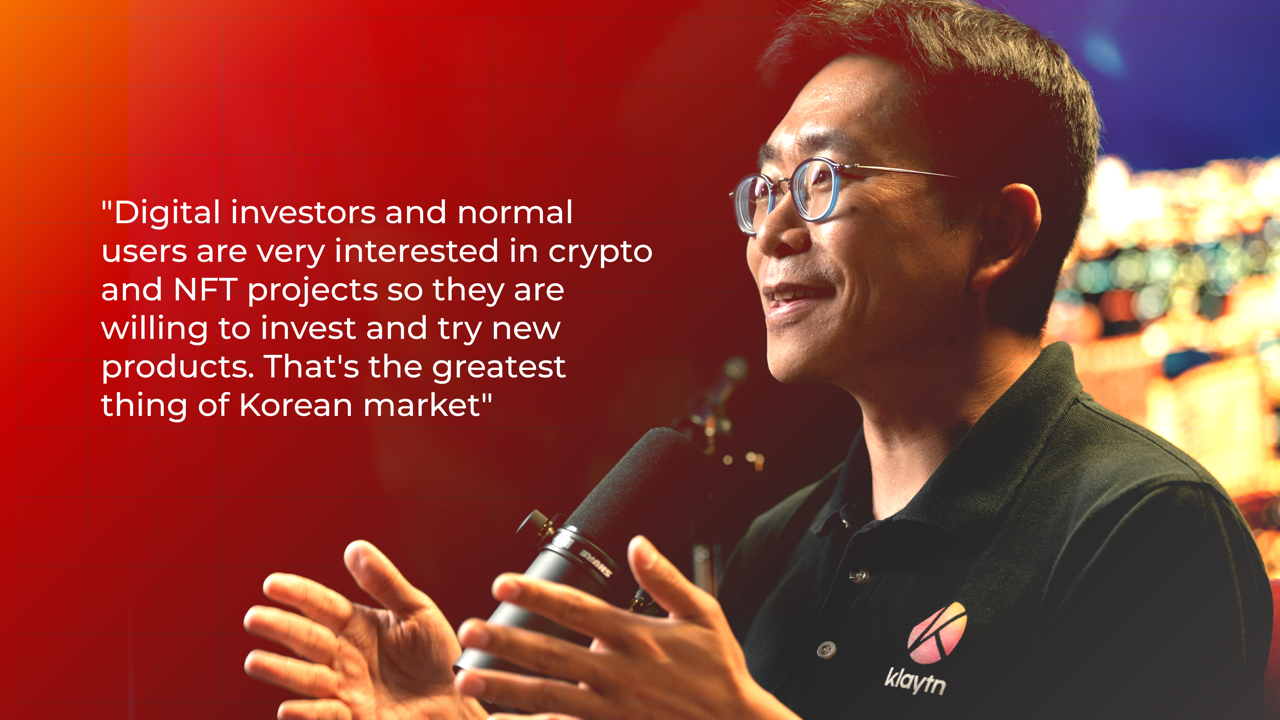
If games are the bridge between Web2 and Web3, South Korea converges many factors that drive a large number of gamers in this country. From the economic context, technological advancements to culture, all have formed a promising land for game projects.

First, South Korea has an ideal infrastructure for gaming. It is a country with the top-quality internet in the world, with an average speed of 28.6 Mbps. Following South Korea, Norway has an average internet speed of 23.5 Mbps. In contrast, the internet speed in the United States is 18.7 Mbps, significantly lower than that of South Korea.
Additionally, the people here are familiar with advanced and open technologies, along with innovative technological initiatives. In 2022, 5G networks gradually entered the daily lives of Koreans through a range of applications connected to the internet, from self-driving cars and digitized operating factories to metaverse platforms.
This opens up new opportunities for the gaming market and related technologies such as augmented reality (AR) and virtual reality (VR).
With an advanced technological foundation, gaming has long been an integral part of the lives of South Koreans. Esports began to flourish in 1997. At that time, the South Korean government spread broadband nationwide to help people access stable and fast internet services.
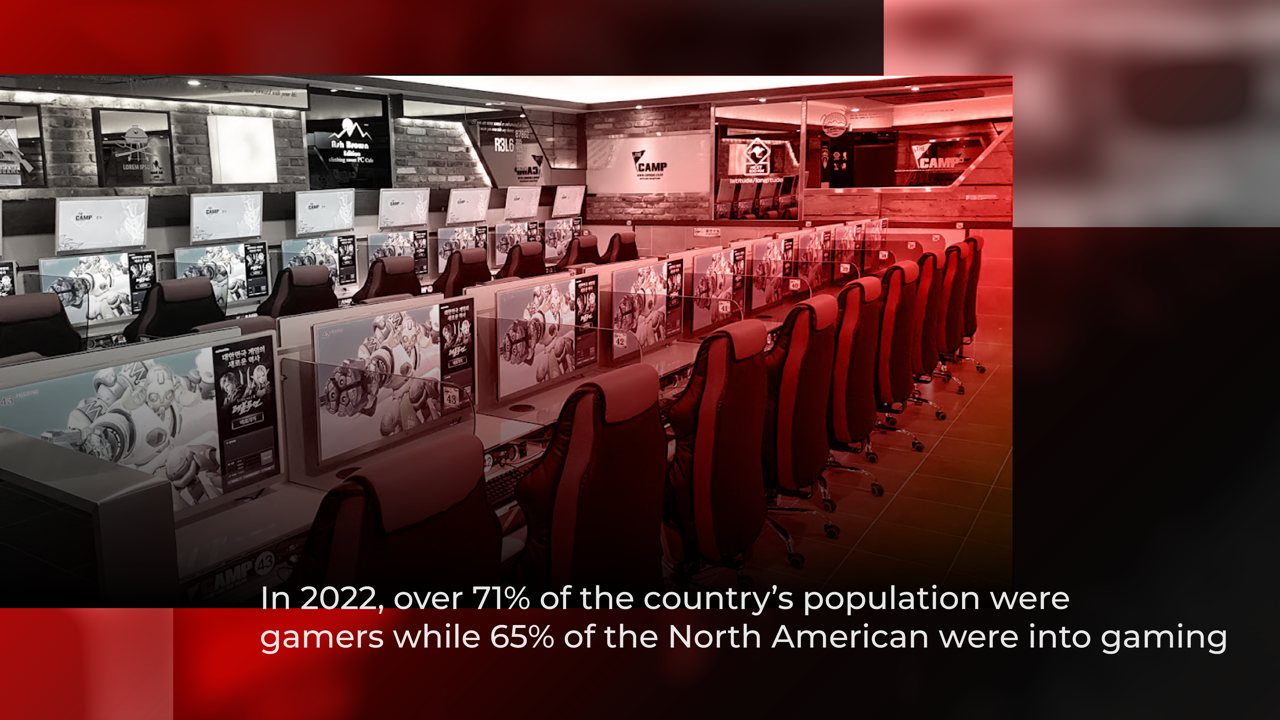
Amid the financial crisis, many unemployed individuals in Vietnam have turned to internet businesses or gaming to pass the time. As a result, the number of "PC Bang," or internet cafes, has rapidly increased. Despite facing an economic crisis, the gaming market in South Korea seized the opportunity and gave way to many famous games such as Starcraft, Ocarina of Time, Half-Life, Dance Dance Revolution...
By now, the concept of PC Bang has spread all over South Korea. Naver, the largest internet portal in South Korea, even has a dedicated section for users to search for esports. In this country, esports is not just about playing games; it has become a distinctive cultural aspect of the Korean people.
In 2000, South Korea became one of the few countries to establish its own association for the esports industry called the Korean e-Sports Association (KeSPA). This demonstrates the open-mindedness of the Korean people and government towards gaming activities. According to the Korea Creative Content Agency (KOCCA) in 2022, over 71% of the Korean population are gamers, while the gaming population in North America is at around 65%.
Recognizing the position of gaming in South Korea, Klaytn has welcomed many game projects onto its network. However, during this process, Seo and the Klaytn developers realized that traditional internet users were "still too early" to adopt Web3 technology.
In the early stages, Klaytn experimented with integrating blockchain into Kakao's Web2 services. Kakao, a leading technology giant in South Korea, provides various services such as the messaging app KakaoTalk, the payment platform KakaoPay, the digital bank KakaoBank, and the ride-hailing service Kakao Mobility.
When integrating crypto wallets into KakaoTalk, Seo revealed that the project did not encounter any technical issues or disruptions. However, the problem lied in users' reluctance to embrace this new type of electronic wallet. Even though Klaytn tried to improve the user experience by "hiding" complex features like wallet addresses and private keys, the Korean people could not fully embrace blockchain wallets.
Shared with Interlock, Seo commented that users paid too much attention to the profit aspect of cryptocurrencies. This causes a decline in the user experience because they become preoccupied with whether the value of their held assets is increasing. Therefore, Klaytn realized that the project needed to find a way to separate the application's features from the crypto assets.
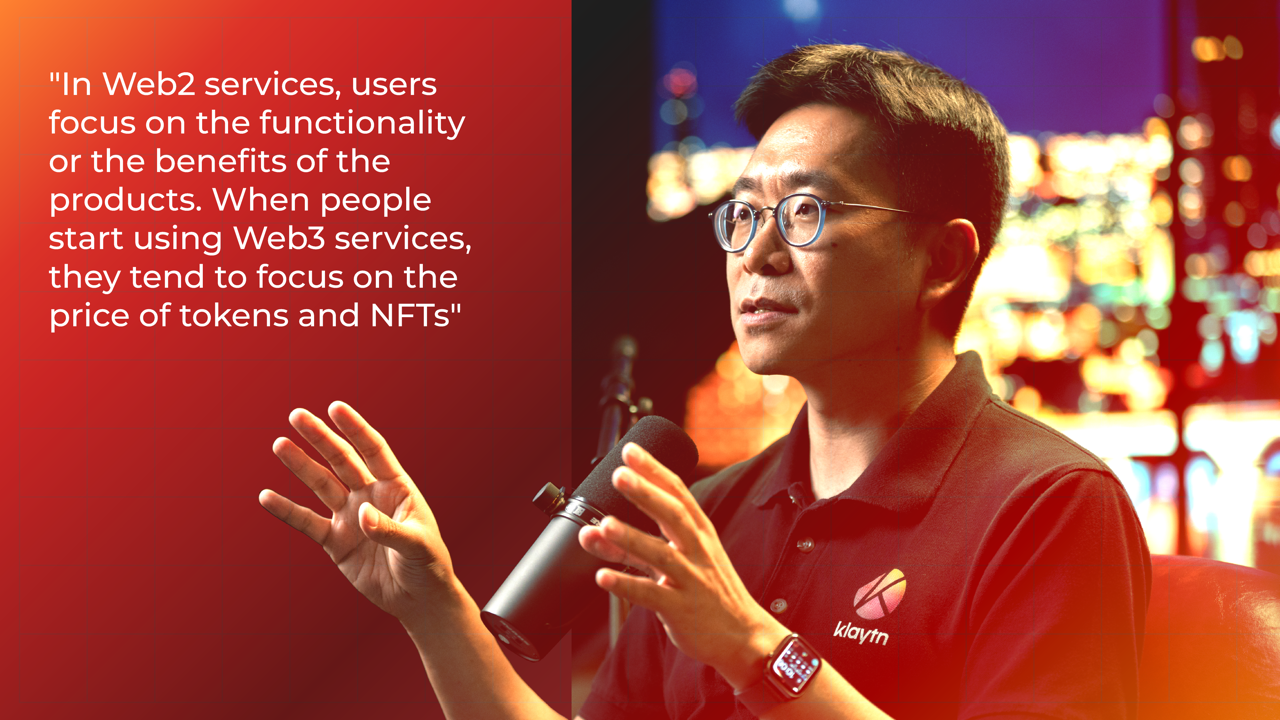
"Regarding games, Seo believes that current projects face similar difficult challenges. In traditional games, players only need to enjoy the experience on the platform. However, in blockchain games, they are mainly concerned with how to collect as many tokens as possible.
Furthermore, when transitioning to the Web3 model, traditional game studios are not ready to give ownership rights of game content to users. In Web2 games, all players' items and assets are recorded in the game producer's database.
According to Seo, ownership rights are the most important factor in Web3, allowing players to have full control over their identity, accounts, and assets. With that vision, Klaytn has collaborated with some game projects to conduct experiments, but the developers had to revisit the initial challenging issue: How to balance the user experience and the Web3 economic model?
For now, Seo believes that it is necessary to simplify the user interface for crypto wallets so that both the younger generation and older people can use wallets more easily. Additionally, in some cases, users can store NFTs in regular wallets and send them directly within the messaging function.
Kakao Talk is one of the applications that offer this feature. Through the Klip wallet, Kakao Talk users can transfer NFTs and more than 10 types of cryptocurrencies to other accounts within the application. Specifically, the Klip wallet is linked to users' bank accounts, and they don't need to know their wallet addresses or private keys.
Users' accounts are managed by Kakao's Key Management Service. Although the integration of the wallet, Kakao's model is quite similar to centralized exchanges. Not only Kakao Talk, but many messaging platforms are also preparing to deploy the feature of transferring crypto assets within the application.
For example, Viber planned to support direct transactions of USD, EUR, the Russian ruble, and Rakuten Coin - the company's own token on their platform. Meanwhile, since April 2022, Telegram has allowed users to send TON tokens through the chat interface. The sender needs to open the wallet section in the menu bar, enter the amount of TON, and press the send button. The recipient will also receive TON tokens through the message.
The aforementioned social networks aim for "speed" and "simplicity" when implementing on-chain transactions. In pure Web3 projects, developers are also seeking unique ways to preserve the characteristics of blockchain while improving the user experience.
In March, Vitalik Buterin, the founder of Ethereum, introduced the concept of "account abstraction," which allows users to switch from traditional wallet formats to smart contracts. For example, when users log into a GameFi platform, an account will be created and users can withdraw funds from their account instead of managing private keys as usual.
Additionally, some applications like Ramper have explored social login technology. With Ramper, users can create and manage wallets using their social media accounts. The social login technology will retrieve login information to generate a private and public key for the wallet account.
